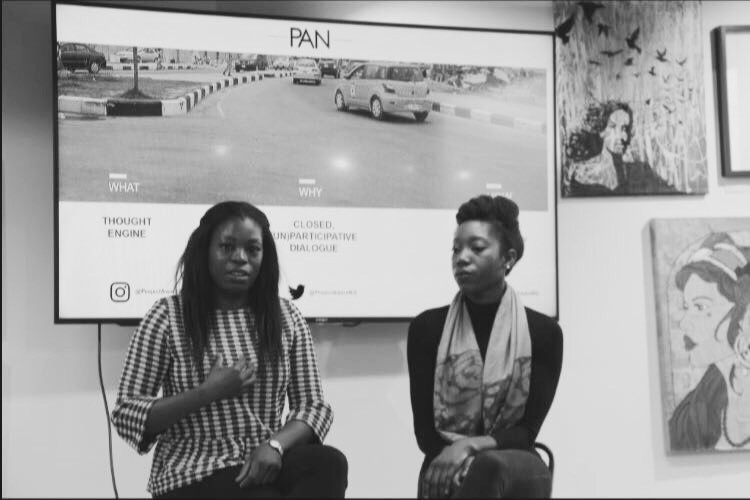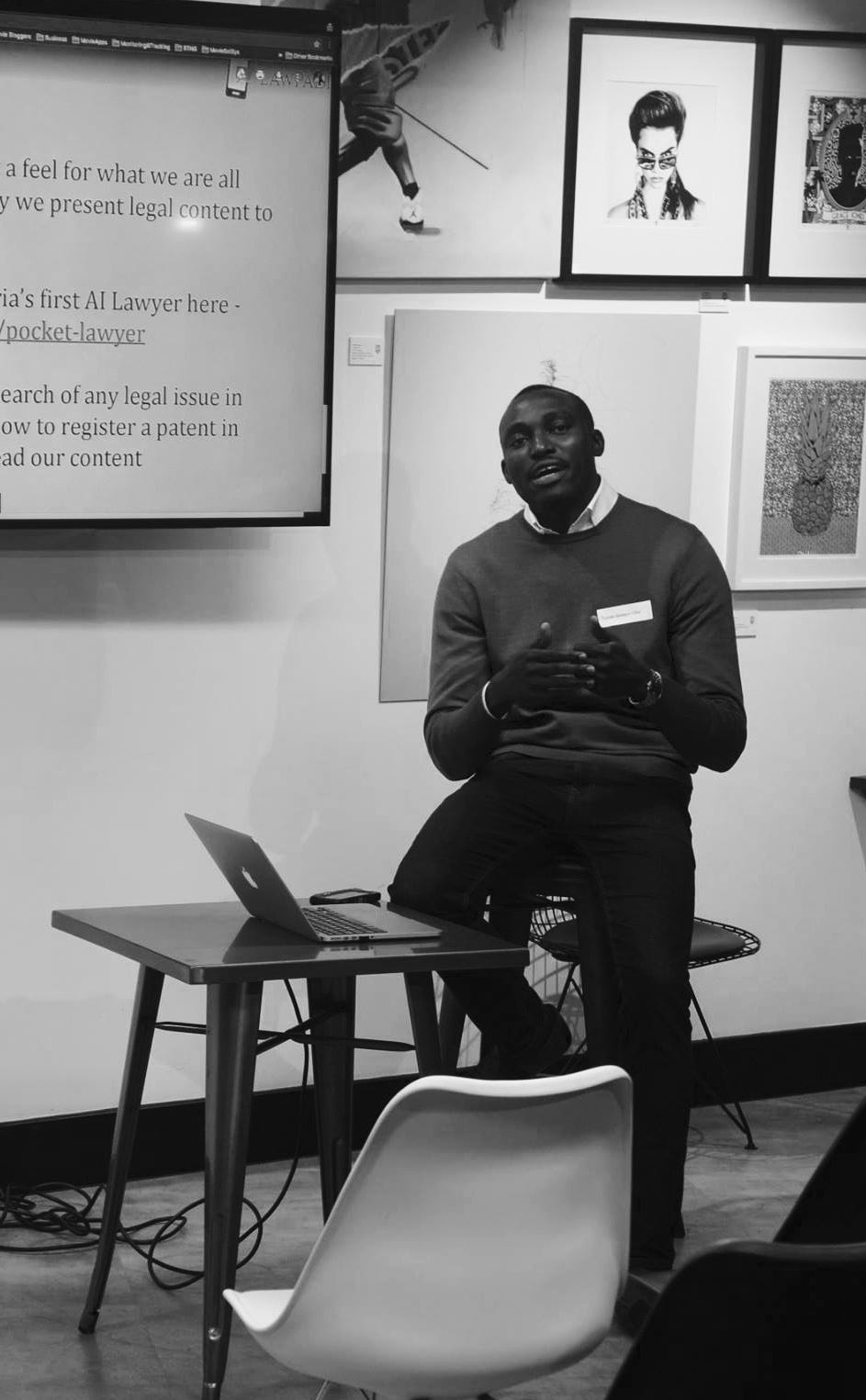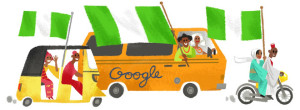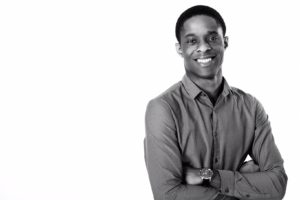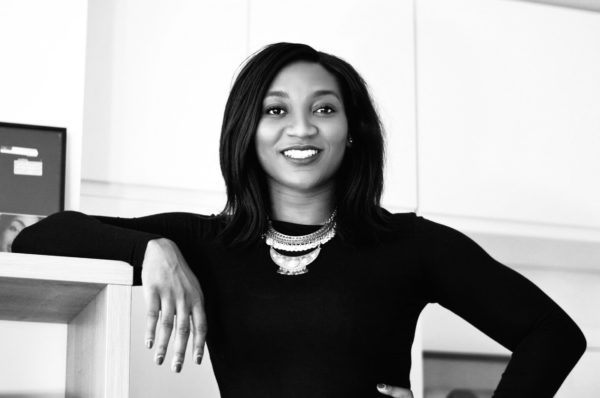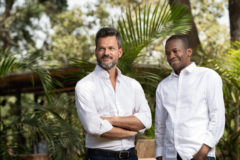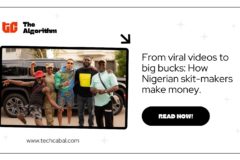Many months ago, I met Amina Ibrahim and Lara Tijani who both happen to be co-founders of Project Awareness Nigeria (PAN) at a BTNG* event in London. And since then, I’ve always made a point to catch up with them as they’re easy going and fun to chat with. What I call cool people.
However, whenever our conversations drift to PAN (as it often does), it’s obvious to see that unmistakable glow, which seems to hover over people when they’re super passionate about something. Their ‘something’ happens to be socio-cultural issues. At the time we first met, they were just about launching PAN and now with their project up and running, it seemed to be the perfect time to explore what they’ve been up to. Enjoy!
Papa: Can you please introduce yourself — Who is Amina and who is Lara?
Amina: I was born and raised in Nigeria and moved to the UK for my undergraduate and postgraduate degree. My day job is in real estate investment but I wear several hats outside of work. One thing I’ve always done is to continually seek a new perspective, opportunities and experiences. In this vein, I’ve worked in a volunteer capacity for several non-profits both in the economic and social sectors. It is only natural that I’ve ended up as a co-founder of PAN.
Lara: I was born in Lagos, although my formative years were spent here in the UK. Like Amina, I work in the financial services industry and I have always had a keen interest in wanting to do more whether that is volunteering or mentorship. More importantly, I felt a responsibility to contribute in some way to my country of birth.
Papa: We’ve met a few times and you ladies always have good vibes together. It appears to me like you’re a good tag team. How did you both meet?
Amina: We get this same question a lot but it’s funny because we don’t actually remember WHERE we first met exactly. However, I can say we’ve been friends for about 5 years.
Lara: I think it was at some sort of social gathering, like a professional networking event. It was inconsequential meeting but we’ve been great friends since.
Papa: Interesting. So you met randomly, became friends, now collaborators.
Both: Exactly.
Papa: Okay let’s move to PAN. There are a lot of people in one way or the other on socio-economic issues. The journey to get there always seems different. I’m curious to know how you both decided this was something you wanted to do and do it together.
Amina: We both knew we wanted to contribute to our country. Even though you say a lot of people are running social non-profits, I don’t believe a lot of the work is strategic. Instead what we have is a lot of silos and no holistic approach which is necessary to create, and more importantly, maintain impact. So we wanted to approach this more from of a policy and research angle. Hence our approach is to go beyond the day to day grassroots operations and connect the dots. We want to understand drivers of sociocultural issues as much as we want to help address them. We believe in opportunities that provide empowerment over charity.
Lara: Just to add to that, we also looked at it from a personal aspect. We know from personal experience and the experiences of people close to us that these sorts of issues are not being talked about enough. People typically shy away from it. Yes — there are a lot of initiatives but collaboration is also not enough and sometimes the policy piece that ties them all together is missing.
Papa: Can you give specific examples of what PAN does?
Lara: PAN’s 3 focus areas are disability, gender reform, and mental health. One of the key considerations for us is that we engage with and bring the voice of people who live or have lived in Nigeria and have the first-hand experience of these issues. For instance, we have a preferred partner approach where we partner with advocates on the ground to identify what the gaps are and where we can contribute and make an impact.
Amina: And while we have those areas of focus, they are on a rotational basis and we are mindful of other areas of interest which we may like to address as we go along. To illustrate the kind of work we do, we recently released an infographic highlighting key points on the three areas of focus. People typically view these issues as things that happen to ‘others’; but then mental illness can happen to anyone. Accidents and illness are the most common causes of physical disability and one can never plan for that. The easiest way to think about what we do is to answer questions such as — ‘What opportunities would you like to have in place if you suffered poor mental health or were physically disabled?’ ‘Wouldn’t you want your son or daughter to success regardless of (and not in spite of) gender?’
Lara: We help to grow them. Our objective is to draw light and help various initiatives on the ground.
Papa: As we all know, Nigeria is a tough place that lots of complications on a daily basis. For instance, the recent flooding in Lagos is sure to bring a lot of pressing challenges for families. How easy is to make people and government care or be aware of issues that might appear to be less pressing?
Amina: I will admit it’s not easy. But we’re flexible and always take feedback on board. One thing we’ve tried to do is to streamline how we deliver our services. And to be honest, we’ve had to learn from trial and error, particularly in how we reach people. For example, in the past, we’ve sent surveys to help our research initiatives but now we are leveraging social media for engagement and working with people on the ground. This has enabled us to more have a better feel of what people want us to address.
Lara: A lot of people underestimate how many people are impacted by the issues we are tackling. Take mental health, for example, there is stigmatization, which is further enhanced by the cultural context e.g. evil spirits are deemed a cause of mental health issues. So when you have situations like that, just being able to speak openly about the issue itself is a success. It draws people to the conversation who can relate based on their own experience or that of others.
What this means is that even when it appears that we are not making a visible impact, we know that creating awareness is progress. The more we engage in the conversation and the movement, the more likely we can effect change.
Papa: What’s your big audacious goal for PAN?
Amina: We would love to reach more people. A way we’d like that to happen is through a franchised model across Africa to share the intelligence we’ve gathered and be able to replicate that across the Continent. We know there are nuances across different countries but strongly believe there are similarities with problems across the continent. The more people we can reach and help is another step forward to achieving our goals, which makes us happy.
Lara: Talking of reaching more people, I do agree that there are opportunities for synergy especially as there are certain things we can learn from other countries. Having that mind set will help us learn, share best practices, the ultimate goal will be to address these issues.
Papa: How can people help or contribute to PAN?
Amina: People get really excited about what we’re doing. They want to share stories and contribute to our efforts but there’s little follow through. And that’s what we want most — your stories; which help us help you and others. Please reach out to us through our website and social media platforms.
Lara: We’re open to technical expertise or statistical expertise; please feel free to get in touch.
Papa: Moving on slightly from PAN, as co-founders how do you reach decisions?
Amina: It’s been very straightforward. We talk things through. We both have the good of the project at heart, so we’re never far from. It’s all about trust.
Lara: I totally agree. Timing is a key factor, it means that there might not be enough time to reach a joint decision and one needs to act and in such situations trust is needed.
*BTNG is a Nigerian Tech community based in London. As luck will have it, we’ve got an event coming up in 2 weeks — sign up here.







